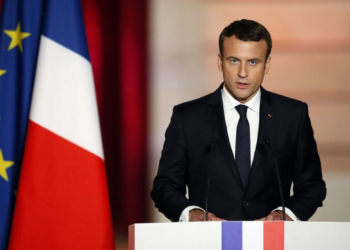All former French Colonies in West Africa, except Guinea Bissau, have agreed with France to rename its CFA franc to the Eco as they cut some of the financial links with Paris, French.
It is generally believed that the CFA franc has underpinned the region’s common currency since its creation after World War Two.
What it means: With the development, while the Eco will remain pegged to the Euro, the African countries in the bloc won’t have to keep 50% of their reserves in the French Treasury and there will no longer be a French representative on the currency union’s board.
[READ ALSO: GlaxoSmithKline Nigeria Plc gets new Managing Director(Opens in a new browser tab)]
The emergence of the currency has been greeted with mixed feelings. While critics of the CFA have long seen it as a relic from colonial times, its supporters said it has provided financial stability when the region was faced with turbulence.
What the leaders say …
The Presidents of Ivory Coast and France also shared their thoughts about the new currency. As far as President Alassane Quattara of Ivory Coast is concerned, “This is a historic day for West Africa.”
For the French President Emmanuel Macron, it is a welcome development. Macron highlighted the stabilizing benefits of the CFA but said it was up to African governments to determine the future of the currency.
“Yes, it’s the end of certain relics of the past. Yes, it’s progress … I do not want influence through guardianship, I do not want influence through intrusion. That’s not the century that’s being built today,” said Macron.
How it works: CFA is used across 14 African countries with a combined population of about 150 million and $235 billion of gross domestic product.
The changes will only affect the West African form of the currency used by Benin, Burkina Faso, Guinea Bissau, Ivory Coast, Mali, Niger, Senegal, and Togo – all former French colonies except Guinea Bissau.
A Reuters report said that the six countries using the Central African CFA are Cameroon, Chad, Central African Republic, Congo Republic, Equatorial Guinea, and Gabon. The CFA’s value relative to the French franc remained unchanged from 1948 through to 1994 when it was devalued by 50% to boost exports from the region.
After the devaluation, 1 French franc was worth 100 CFA and when the French currency joined the eurozone, the fixed-rate became 1 euro to 656 CFA francs.
The CFA franc was born in 1945 and at the time stood for “Colonies Francaises d’Afrique” (French Colonies in Africa).





















